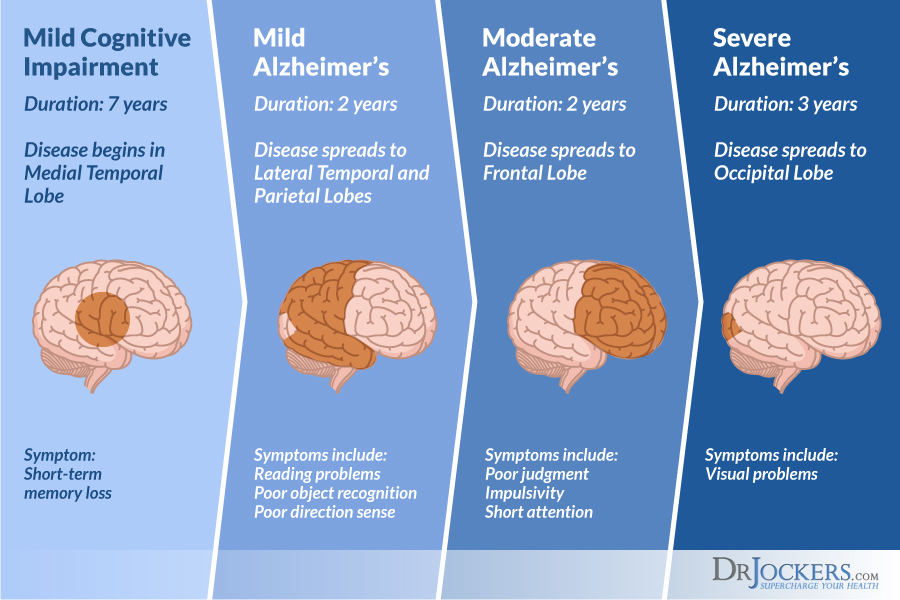Discover the best foods and lifestyle changes to support brain health and reduce the risk of Alzheimer’s disease. Learn how diet, exercise, and mental activities can protect your brain.
Guest post by Hema Cherukooru
Alzheimer’s disease is a progressive brain disorder that destroys thinking skills, memory, and slowly results in the inability to carry out simple tasks. Most cases of Alzheimer’s occur in adults over 65 years and older. Changes in the brain begin a decade or more before cognitive and memory problems appear. About 5.8 million Americans were living with Alzheimer’s in 2020. However, this number is expected in 2060 to triple to about 14 million.
The cause of Alzheimer’s is a combination of environmental, genetic, and lifestyle factors. A type of apolipoprotein E (ApoE) gene increases a person’s risk of this disease. Alzheimer’s tends to occur in most people with Down Syndrome, due to the presence of an extra copy of chromosome 21, as this generates harmful amyloid plaques. Exposure to pollutants, stroke, heart disease, diabetes, high blood pressure, and obesity are some of the health, lifestyle, and environmental factors that can also contribute to the development of Alzheimer’s.
Early signs of Alzheimer’s include forgetting recent conversation or events. Though symptoms vary among individuals some of problems include – having trouble coming up with words, spatial and visual issues, impaired judgement and reasoning, normal tasks takes longer to complete, wandering and getting lost, trouble paying bills and handling money, repeating questions, losing or misplacing things, personality and mood changes, and increased aggression and/or anxiety.
Currently, there is no cure for Alzheimer’s. Medications are used to treat some symptoms and behavioral symptoms are managed using coping strategies. Prevention of Alzheimer’s is not possible, modification of risky lifestyle factors would be helpful. Reducing the risk of cardiovascular disease through diet, habits and exercise, may lower the risk for developing Alzheimer’s. Some of the lifestyle changes include – regular exercise, quitting smoking, managing diabetes, high blood pressure, and high cholesterol. Foods that reduce the risk of Alzheimer’s would be to include Mediterranean diet, that comprises fish, avocados, fruits and vegetables, olive oil, whole grains, nuts, beans, red wine in moderation.

Stages of Alzheimer’s include:
- Early stage – memory loss and cognitive difficulties occur in patients. Symptoms gradually appear to patients and their family and Alzheimer’s usually diagnosed at this stage.
- Middle stage – Patients are more confused and have trouble recognizing friends and family. Areas of brain that control language, sensory processing, reasoning, and conscious thought can be damaged.
- Late stage – Patient cannot communicate and depends on others to for complete care. Body shuts down and may be in bed in all or most of the time.
In middle and late stages of Alzheimer’s, providing regular and nutritious meals becomes challenging which could increase behavioral symptoms and lead to weight loss.
Nutrition guidelines comprise:
Balanced diet: Include a variety of foods such as fruits and vegetables, low-fat dairy products, whole grains, and lean protein foods.
Reduce refined sugar: Refined sugars add calories and lack minerals, vitamins, and fiber, and hence should be cut down. However, in late stages when appetite is a problem, sugar can be added to foods to encourage eating.
Limit foods high in saturated fats and cholesterol: Intake of some amount of fat is essential for health. Reduce the intake of butter, lard, solid shortening, and fatty cuts of meats.
Use less salt: American diet in high in sodium and may affect blood pressure. Spices can be used as alternative to season foods.
Oral supplements: Loss of appetite and weight loss may occur in later stages of Alzheimer’s and oral supplement may be required to add calories.
Hydration: Important to stay hydrated by offering water and other fluids throughout the day.

Make mealtime comfortable by limiting any distractions, to avoid confusing food from plate or table use contrast plates against placemat or tablecloth. Include foods that are preferred by allowing plenty of time to eat.
Alzheimer’s is mostly associated with memory loss and gradual deterioration of functions, ultimately leading to complete dependence on care and body shut down. A combination of genetic, environmental, and lifestyle factors can lead to the risk of Alzheimer’s. Mediterranean diet, lifestyle changes like regular exercise are helpful in reducing the risk of Alzheimer’s.
Wear purple in June to support Alzheimer’s awareness and walk to end Alzheimer’s this fall. Click here to find a location near you.
Hema Cherukooru is a dietetics student at the University of Northern Colorado pursuing a Bachelor’s Degree in Dietetics.

References:
- NIH.gov (May 22, 2019). National Institute of Aging: Alzheimer’s Disease Fact sheet. Retrieved on May 27, 2021, from https://www.nia.nih.gov/health/alzheimers-disease-fact-sheet#changes
- CDC.gov (October 26, 2020). Alzheimer’s disease and healthy aging. Retrieved on May 27, 2021, from https://www.cdc.gov/aging/aginginfo/alzheimers.htm
- Mayoclinic .org (n.d.). Alzheimer’s disease. Retrieved on May 27, 2021, from https://www.mayoclinic.org/diseases-conditions/alzheimers-disease/symptoms-causes/syc-20350447
- Alzheimers.gov (n.d.). What is Alzheimer’s? Retrieved on May 27, 2021, from https://www.alzheimers.gov/alzheimers-dementias/alzheimers-disease#what-causes-alzheimer%E2%80%99s
- Harvard.edu (May 08, 2020). What to eat to reduce your risk of Alzheimer’s disease? Retrieved on May 28, 2021, from https://www.health.harvard.edu/blog/what-to-eat-to-reduce-your-risk-of-alzheimers-disease-2020050819774
- Alz.org (n.d.). Food and Eating. Retrieved on May 28, 2021, from https://www.alz.org/help-support/caregiving/daily-care/food-eating



0 Comments